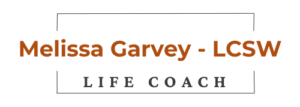Imposter syndrome to Inner Authority
From Imposter Syndrome to Inner Authority: Trusting Your Professional Instincts

You’ve mastered the skills. You’ve earned the credentials. You’ve delivered results that speak for themselves. Yet as you sit in that boardroom, an insidious voice whispers: “They’re going to realize I don’t belong here.
If his resonates, you’re not alone—and you’re not broken.
You’re part of a phenomenon that disproportionately affects high-achieving women, even as they advance in their careers. But here’s what the research reveals: the very qualities that make you successful may also make you vulnerable to self-doubt. More importantly, there’s a scientifically-backed pathway from imposter syndrome to what I call “inner authority”—the ability to trust your professional instincts with confidence.
The Research Reality: Why Successful Women Doubt More
Recent meta-analysis research examining over 40,000 participants across 108 studies confirms what many of us have experienced firsthand: women consistently score higher on measures of imposter syndrome than men, with a meaningful effect that hasn’t decreased over time. This isn’t about individual failing—it’s about systemic patterns that deserve our attention and understanding.


A 2024 study by Korn Ferry found that 71% of U.S. CEOs and 65% of other senior executives reported experiencing imposter syndrome. Yet the experience isn’t uniform. Nearly half (47 percent) of female employees said they experienced imposter syndrome more frequently the further they had progressed in their career, while 42 percent of men said the same. The higher we climb, the more intense these feelings can become.
Understanding the Imposter Experience
The antidote to comparison culture isn’t isolation from social media—it’s developing what psychologists call “intrinsic motivation” and authentic self-worth. Research by Ryan and Deci (2000) demonstrates that individuals with strong intrinsic motivation, driven by internal values rather than external validation, show greater psychological well-being and resilience.
Imposter syndrome, first identified by psychologists Pauline Clance and Suzanne Imes in 1978, manifests as “the subjective experience of perceived self-doubt in one’s abilities and accomplishments compared with others, despite evidence to suggest the contrary”. The original research revealed something crucial that remains relevant today. Even when mentors acclaim women as intellectually superior, creative, and special, they often don’t believe the positive feedback.

This disconnect between external recognition and internal experience creates what researchers call “empty success”—achievements that feel hollow despite their objective value.
The Neuroscience of Self-Doubt

Understanding the neurological underpinnings of imposter syndrome helps
us approach it with compassion rather than judgment. When we experience imposter feelings, our threat detection system activates, flooding our nervous system with stress hormones that can impair clear thinking and decision-making.
Research on goals shows that when our actions align with our deeper values and sense of self, we experience more vitality, clarity, and long-term motivation. However, when we begin to operate in ways that are subtly misaligned, even if those actions look successful from the outside, our internal motivation diminishes. This misalignment often contributes to the persistent feeling that something is “off,” despite external success.
The Authority Alternative: Building Inner Trust
The antidote to imposter syndrome isn’t more confidence—it’s cultivating what I call “inner authority.” This represents a fundamental shift from seeking external validation to developing genuine self-trust based on your accumulated wisdom and professional instincts.
Defining Inner Authority Inner authority differs from confidence incrucial ways:
- Confidence often depends on external validation and can fluctuate with circumstances
- Inner authority stems from deep self-knowledge and remains stable regardless of external feedback

Self-trust is defined as “the firm reliance on the integrity of yourself”. People with genuine self-trust “have clarity and confidence in their choices. They are interdependent, which includes healthy dependency, not overly dependent or hyper-independent. They speak with authority that comes from a deep place within but is not arrogant”.
The Science-Based Path Forward
1. Cultivate Self-Compassion as Foundation
Dr. Kristin Neff’s research on self-compassion provides a critical starting point. Many of us are more compassionate with others than ourselves. When you make a mistake or face a challenge, ask yourself: How would I respond to a colleague in this situation?

Self-compassion doesn’t mean lowering standards—it means creating the psychological safety necessary for learning and growth. People who have learned to relate to their inner critical voice productively can examine their experience without fear of self-punishment.
Practical Application: Before your next important decision, pause and ask: “What would I advise someone I respect who was facing this same situation?”
2. Develop Values-Based Decision Making
Real leadership authority comes from alignment with your inner values and intuition. Rather than constantly seeking external approval, begin each decision-making process by identifying what matters most to you in this situation.

Practical Application: Create a personal values inventory. Before major decisions, ask: “Which option aligns most closely with my core values?” This becomes your internal compass for professional choices.

3. Practice Present-Moment Awareness
Being caught in the past or worrying about the future undermines self-trust. Emotional exhaustion can mute inner clarity, leading capable women to self-doubt.
The solution involves what researchers call “slowing the moment between impulse and delegation”—creating space to notice your immediate responses before defaulting to seeking others’ opinions.
Practical Application: When you’re in a situation where you feel indecisive, consider asking yourself, “is this what I really want?” If you repeat this question often, you may find your inner voice or inner knowing becoming clearer.
4. Build Mastery Through Deliberate Practice
Building mastery over a specific skill can help you regain your self-esteem and trust in your ability to cope with life’s challenges. This concept, drawn from Dialectical Behavior Therapy, helps rebuild what psychologists call “self-efficacy”—your belief in your ability to perform tasks and achieve goals.

Practical Application: Identify one professional skill you want to deepen. Commit to deliberate practice with specific, measurable goals. Each small victory builds evidence of your capability

5. Embrace Vulnerability as Strength
Counterintuitively, leaders who cultivate vulnerability and authenticity create deeper trust within teams, achieving better outcomes. This applies to self-trust as well—being honest about uncertainty actually strengthens rather than weakens your authority.
Practical Application: In meetings, try phrases like “I need to think about that” instead of immediately deferring to others’ expertise. Give yourself permission to not have instant answers.
Reframing Professional Instincts
Your professional instincts—those immediate knowing responses to situations—aren’t random. They’re the synthesis of years of experience, pattern recognition, and accumulated wisdom. Yet imposter syndrome often causes us to dismiss these instincts as “just hunches” while elevating others’ opinions as more valid.
Trusting your intuition means listening to your inner voice and letting it guide your choices, even when logic suggests otherwise. It helps you make decisions that align with who you are.
When Inner Authority Feels Risky
Many successful women hesitate to trust their instincts because the stakes feel high. However, research suggests that our fear of being “found out” often prevents us from using our most valuable asset—our accumulated professional wisdom.
Consider this reframe: Every time you dismiss your professional instincts in favor of external validation, you’re actually choosing the riskier path. You’re betting that others understand your situation, priorities, and capabilities better than you do.

Building Your Authority Practice
Week 1: Awareness
- Notice when you immediately seek others’ opinions before considering your own
- Track moments when your first instinct proved correct
- Observe your internal dialogue during decision-making
Week 2: Small Stakes Practice
- Make low-risk decisions based solely on your initial assessment
- Practice saying “Let me think about that” instead of immediately asking others
- Notice how it feels to trust your judgment on minor issues
Week 3: Values Integration
- Identify your top three professional values
- Apply these as filters for medium-stakes decisions
- Document alignment between value-based choices and positive outcomes
Week 4: Authority Expression
- Share your perspective first in one meeting before seeking others’ input
- Advocate for a solution based on your professional instincts
- Reflect on the difference between confidence-seeking and authority-expressing.
The Ripple Effect
When you shift from imposter syndrome to inner authority, the impact extends beyond your personal experience. Research shows that having a friend in the workplace is associated with lower feelings of imposter syndrome, especially among women. As you model self-trust, you create psychological safety for others to do the same
Moving Forward
The journey from imposter syndrome to inner authority isn’t about eliminating all self-doubt—it’s about changing your relationship with uncertainty. Self-trust doesn’t mean you trust yourself to know all the answers; nor is it believing that you will always do the right thing. Instead, it means trusting your ability to navigate challenges, learn from experiences, and make decisions aligned with your values. occupy it.
Your professional instincts are not accidents—they’re the culmination of your expertise, experience, and wisdom. In a world that often encourages women to question themselves, trusting these instincts becomes both a personal victory and a professional superpower. The research is clear: Imposter syndrome may be common, but it’s not permanent.

With intentional practice and evidence-based strategies, you can transform self-doubt into the quiet confidence of inner authority. Your insights, perspectives, and professional instincts deserve not just a seat at the table, but the trust and respect that comes with genuine expertise.
You’ve earned your place. Now it’s time to trust yourself enough to fully occupy it.
Melissa Garvey is a Licensed Clinical Social Worker and Certified Life Coach with 18 years of experience supporting adults and teens through personal development and life transitions. Through Melissa Garvey Coaching – Adult & Teen Development Coaching, she provides specialized support for career development, leadership, confidence building, and anxiety management. Services are available in-person, through HIPAA-compliant video platforms, and via concierge services for added convenience and discretion.
Meet Melissa: Your Transformation Partner

I help adults and teens discover the calm confidence that makes everything else possible.
If you’re here, you’re likely someone who achieves a lot but still struggles with that inner voice that second-guesses, overthinks, or worries about what’s next. Whether you’re a professional woman ready to optimize how you operate, or a parent seeking support for your teen, you’ve found someone who understands both the external pressures and internal struggles that come with caring deeply about your life and impact.




